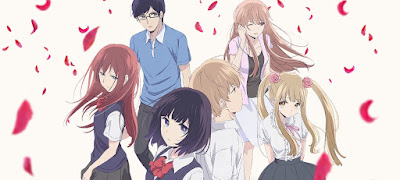Little Women (2019) Review
Directed by Greta Gerwig, this makes the seventh film adaptation of the 1868 classic novel by Louisa May Alcott. Little Women follows the lives of the four March sisters - Meg, Jo, Beth and Amy - from childhood to adulthood. The March sisters are rather distinctive from each other - Meg is traditional, Jo is rebellious, Beth is shy, and Amy is vain. The four of them take interest in different forms of art - Meg in acting, Jo in literature, Beth in music, and Amy in painting - though only Jo and Amy attempted in pursuing them.
Little Women is a beautiful tale about family, love, and womanhood. The three elements are woven so wonderfully together and all played equal importance, retaining the essence of a coming-of-age drama. Each of the March sisters have different takes on what those elements mean to them: Meg is content with serving her family and abandoning her ambitions, Jo believes that her womanhood must come with freedom and financial independence, Beth asks little of the world as long as her loved ones can remain together, whereas Amy desires to be a part of the elite and fine society.
Did I enjoy Little Women? Yes, I did, very much. I cried in a way that was cathartic, at all the loss that came with the process of growing up.
(My reviews are usually kept spoiler-free, but Little Women will be an exception because discussion is simply impossible without revealing the plot.)
Gerwig decided to present her version of Little Women in a non-chronological manner, alternating the past and the future. There is a certain charm to this method of storytelling - the melancholic and blissful past is followed by a reminder of how much has changed since then. The result is a devastating yet exquisite retelling of a tale which has withstood the test of time.
To fully appreciate Gerwig’s spin on Little Women, it is important to compare it to the source material and its past adaptations (both of which I’m unfamiliar with). In this adaptation, Gerwig left the ending open to interpretation, as there is no way of finding out whether the scene of Jo chasing Friedrich under the rain actually happened, or merely a scene in her novel. After all, both are equally possible, if you consider the events before and after the kiss.
During the conversation between her mother and her, Jo mentioned how she feels so very lonely, which can be interpreted in two ways. Firstly, it could mean that she now longs for a life companion, and has changed her mind into accepting Laurie. Secondly, it could mean that she is lonely in her sentiment towards marriage, and this loneliness was amplified when the immediate women around her chose marriage.
"Don't sit there and tell me that marriage isn't an economic proposition, because it is."
The first interpretation appeared to be the most obvious and logical. It made sense for Jo to eventually open up to the idea of marriage, and settle down with Friedrich. After all, marrying Friedrich aligned with her ambition of establishing a school, since Friedrich is a professor who can help with running it. Friedrich is also a kind man who can teach her patience and subdue her naturally fiery temper.
However, although the second interpretation seems less likely, it is not entirely impossible. Jo was lonely, yes, and she was at a point in her life where she cared more to be loved than to love. Jo had always been unyielding in her view towards marriage, and this was the first time we saw her wavering. However, something inside her may have unshackled when Laurie announced his engagement to Amy, helping her realize that staying unwed feels like the most natural decision after all. She then proceeded to give her character (who was based on herself) the ending most ‘palatable’ to the audience, whilst remaining single herself. She still ran the school with Friedrich, but whom she hired as a tutor.
Either way, the ending managed to satisfy all parties; both the hopeless romantics who wanted Jo to fall in love, and those who value liberty much like younger Jo.
Either way, the ending managed to satisfy all parties; both the hopeless romantics who wanted Jo to fall in love, and those who value liberty much like younger Jo.
I’d also like to bring up the significance of Jo’s first truly successful novel being a partial biography. The tale of Little Women would have left a different aftertaste if Jo’s final published work had been anything of a different genre: mystery, thriller, or fantasy. It feels so perfectly right to make her novel be one about her life, proving that ordinary women still have extraordinary stories to tell.
"You are a writer. Even before anyone knew or paid you."
The only (somewhat) negative thing about Little Women I can pick on was how Emma Watson's natural accent slipped out from time to time while playing an American woman. In addition, the soundtrack, although lovely, did not particularly stand out to me. There isn't a song for me to remember Little Women by, which is a bummer because there is nothing quite as fun as voluntarily listening to music strongly associated with sad memories. However, these did not affect my experience in any way.
Little Women has been an extremely delightful watch which I recommend to all. It remains relevant till this age, and will be cherished for many years to come. If you’d like to dive deeper into how its adaptations have evolved over time, you could start with a study of Friedrich Bhaer, who apparently was portrayed rather differently across several remakes.
"My little women. How you've grown."








Comments
Post a Comment